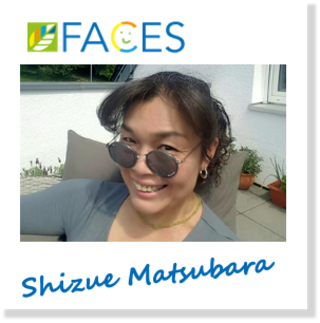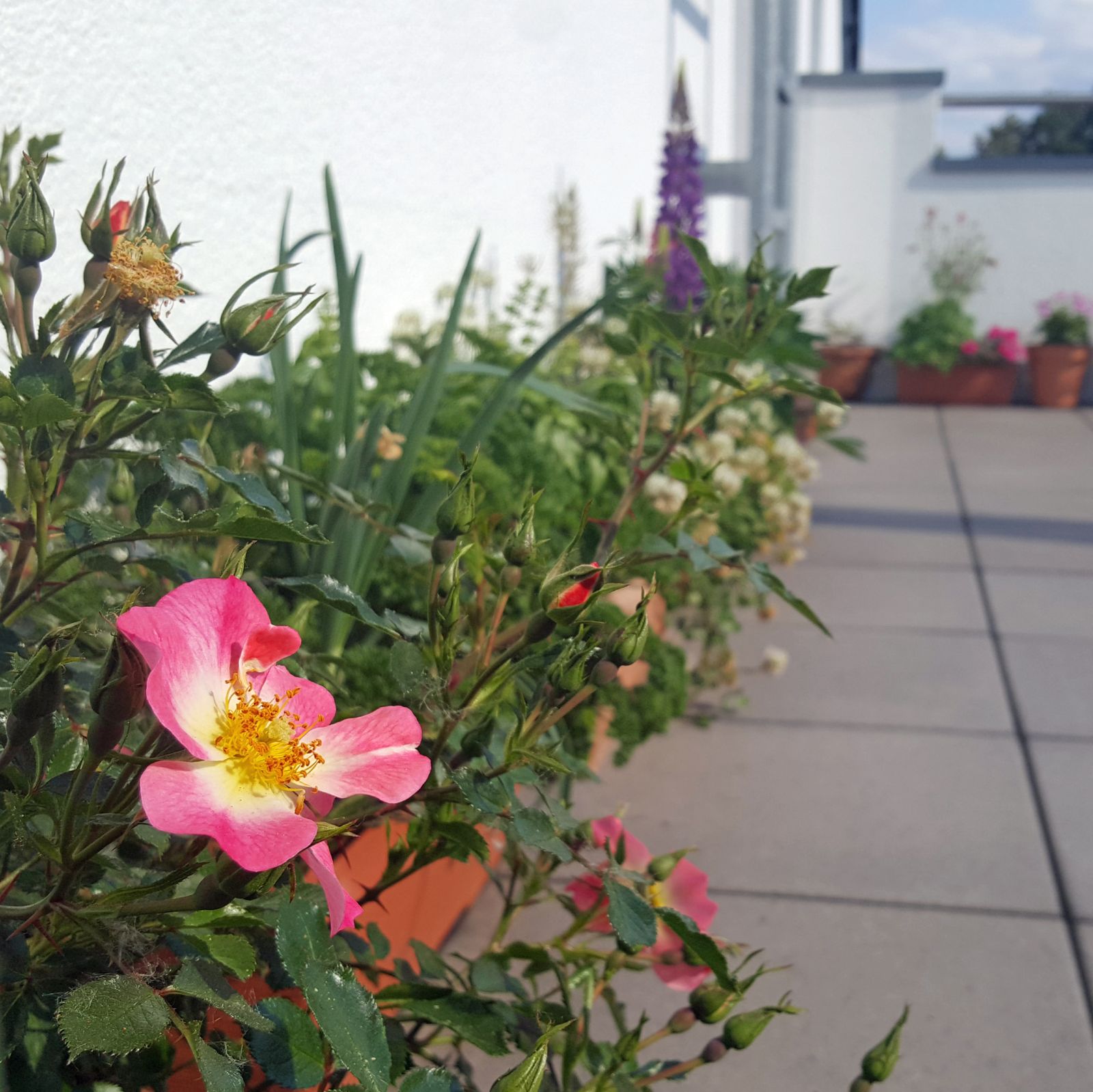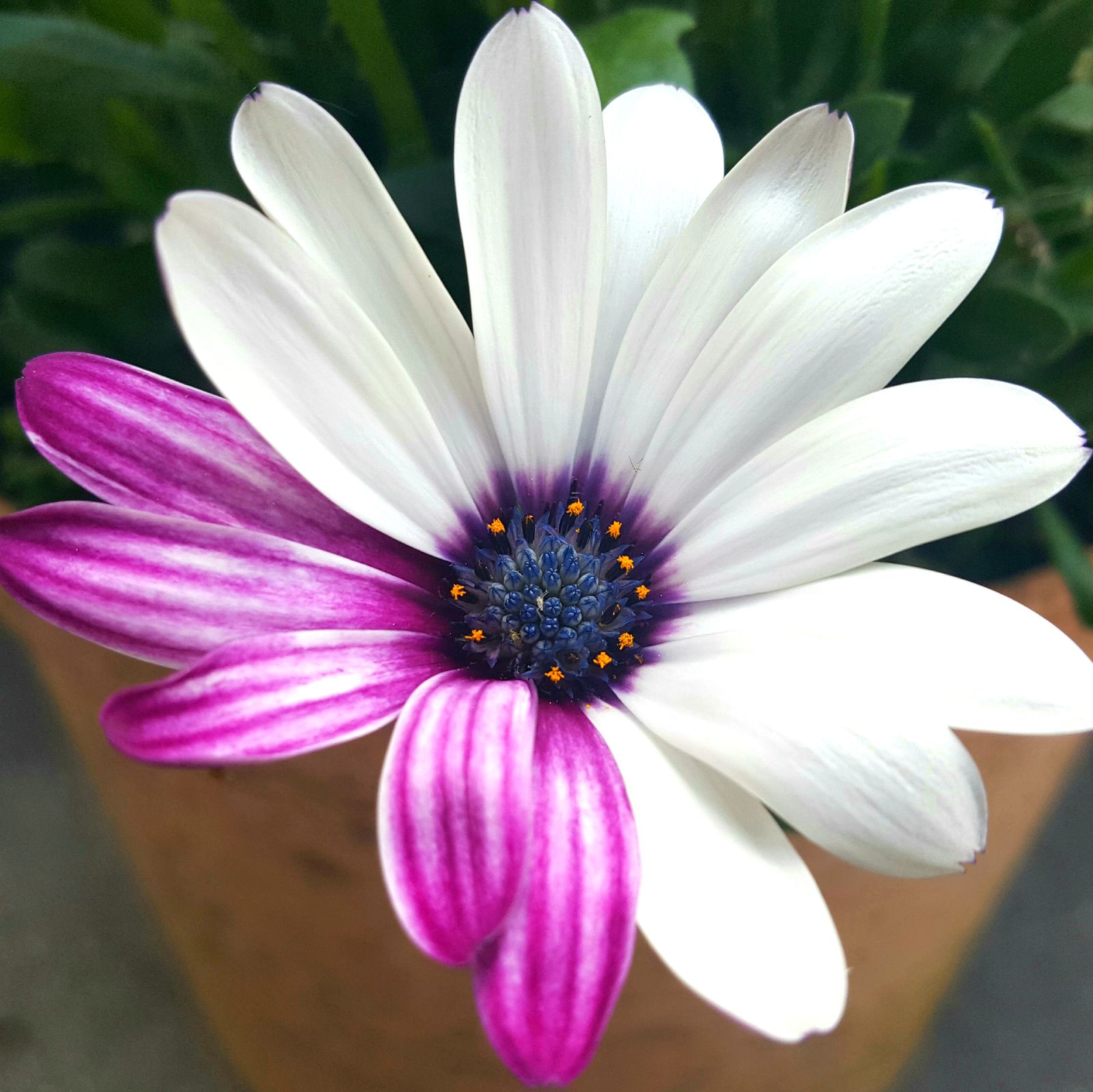

Six questions to Shizue Matsubara
Question 1
What fascinates you most about natural sciences?
To understand the natural world is the fascination of natural science shared by many of us. With the progress of knowledge and technology, also driven by aspiration and necessity, some of us begin to feel another motive that is usually attributed to engineering: to control the natural world. The combination of these two, understanding and controlling, in physics and chemistry shaped the world in the last century. Today we are witnessing — and in CEPLAS also actively driving — similar development in biology. That’s really fascinating!
Question 2
What is your favorite plant and why?
I can’t decide which plant is my favorite, but there is one plant, for which I drove nearly 8000 km from the East Coast to the West Coast of Australia and back. Nuytsia floribunda is native to Western Australia and belongs to one of three genera of terrestrial root-parasitic mistletoes that are ancestral to aerial shoot-parasitic mistletoes. I was studying the origin and function of a unique carotenoid in mistletoe leaves and wanted to know if this pigment already occurred during early evolution of mistletoe. In a place nearby Perth I found big trees of N. floribunda with their branches full of bright orange flowers and green leaves. Australian mistletoes have showy flowers but N. floribunda in full bloom offers an exquisite view of summer Christmas in Down Under.
Question 3
Which incident from your life as a researcher has remained in your memory the most?
It was at the International Congress on Photosynthesis in Beijing, 2010. Jian-Ren Shen presented a high-resolution crystal structure of photosystem II and showed a detailed molecular design of biological water splitting. When he finished the talk, people in the lecture theater gave a long standing ovation in celebration of the achievement — the achievement that extended the horizon of our knowledge and possibilities, the achievement that was made based on the work and efforts of generations of researchers in this field of science. I was thrilled to find myself being a part of the community.
SPECIAL QUESTION
You grew up in Japan, spent some years in Australia and have been living in Germany for a long time. Which experiences from the different countries have remained in your memory the most?
In an archipelago country where nearly 99% of the population were and are still of Japanese ancestry, I was given traditional (at home) and international (at a Christian school) education, which turned out to be a good preparation for a multicultural way of living in my later years. For example, I started to take lessons of Chinese calligraphy and traditional Japanese music instruments (Koto, Shamisen) at the age of 4 or 5, while as a teenager I spent several summers with my Italo-American host family in California. And I liked both!
Germany has awaken my interest in biology. I studied viticulture and enology in Geisenheim, all courses and exams were given in German back then. Winemaking is an integration of natural science, engineering and art. There are strong effects of genotypes (riesling, chardonnay, pinot gris, merlot etc.), weather conditions (vintage), soil (cru) and interactions with microbes (disease, noble rot or “Edelfäule”, different fermentation). Many people appreciate these differences and are therefore willing to pay (sometimes a lot!) more for favorite phenotypes in bottles.
During my PhD in Australia I could get inspirations and excellent training for my academic path in a casual & friendly Aussie atmosphere. Human relationships are much less hierarchical there than in Japan, Europe or the USA. Outside work I learned the pleasure of outdoor activities, of which Australia has so many to offer. It was also easy to combine work, leisure and adventure, like the trans-Australian trip for N. floribunda or my first elevator pitch in a symposium at Heron Island in the Great Barrier Reef. I couldn’t complain!
Question 4
What advice would you give to young scientists?
No two persons ever had the same career path. Explore and follow your own!
Question 5
If you had the choice, which research question would you like to be able to answer?
How plants do recycling. Recycling is important for humans and for plants because neither of us have unlimited resources. But the process of recycling, which involves remobilization, conversion, degradation, redistribution and (re)synthesis, is difficult to study in plants. I think we can learn more from plants as they’ve been doing green recycling for millions of years. Some “experts”, which are adapted to resource scarcity, may know the tricks of how to reuse the limiting resource more efficiently.
Question 6
What's your favorite thing to do after work?
From spring to summer I enjoy gardening on the terrace at home. I don’t think about work while taking care of my plants there, but sometimes I find curious phenomena that make me wonder how they happened. Reading books (though recently more newspapers than books) and listening to music (often singing or humming along) are like air and water for me.



Profile
Name:
Shizue Matsubara
Position:
Group leader, IBG-2: Plant Sciences, Forschungszentrum Jülich
In CEPLAS since:
2019
Place of birth:
Tokyo, Japan